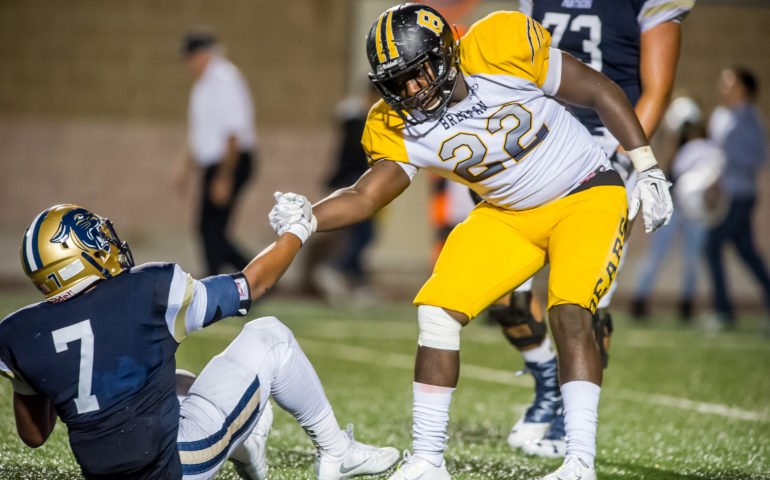By Tom Johnson
After a difficult loss, we’ve all heard our coaches or parents say, “it doesn’t matter if you win or lose, it’s how you play the game.”
At the time, these words provide very little comfort, but sportsmanship is just as important as the outcome of games. In order to address the issue of sportsmanship, many school boards across the country are trying to better educate student-athletes about how to conduct themselves on the field.
In Michigan, the governing body of prep sports – MHSAA – created a Student Advisory Council (SAC) which focuses on addressing the topics of sportsmanship, safety, scholarship and student leadership. The SAC is an exclusive committee consisting of 16 students – eight boys, eight girls, eight juniors, eight seniors – and holds four seven-hour meetings and one 24-hour leadership camp.
One of the members of this prestigious organization, Jordan Michalak, is a state championship golfer who received an athletic scholarship to The College of William and Mary.
Yet she is equally proud of her selection to the SAC as her exploits on the links. Michalak told the Observer & Eccentric:
The MHSAA gets over 100 applications for the council every year, so I was honored to be chosen to be part of this group.
As she reflects on her experience, Michalak is convinced that the greatest issue facing student-athletes is sportsmanship
Sportsmanship is a lot like character
Most people equate character to how someone acts when no one is watching. On the field of play, sportsmanship is how a student-athlete conducts themselves when a referee or coach is not paying attention. For this reason, Michalak believes that it’s very difficult to monitor poor sportsmanship in the middle of a game.
Since it is so difficult to monitor, student-athletes and institutions must do a better job at promoting sportsmanship. With more initiatives like the SAC, student-athletes can learn how to play with character by respecting the game, their opponents and becoming a more gracious loser.
Sportsmanship is more than being a good loser
Some student-athletes will explain away their bad attitude by boasting that they just really hate losing. In addition to being an infantile response, this type of logic justifies and perpetuates bad behavior.
It’s not easy to stay positive after a devastating loss, but remember that being a poor sport can have consequences for your athletic future. No college coach is going to enjoy watching video of you throwing a tantrum or trash talking. By acting out on the field, you are telling scouts and college coaches that you might not be “coachable” — and aren’t worth their time.
Even if you are supremely talented, college coaches will take you off their board for habitual bad behavior and poor sportsmanship.
In sports and in life, people of high character are much better equipped for success.

